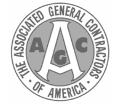When Should I Replace My Halon Fire Suppression System?
If you have a Halon fire suppression system in your Houston property, it must have been installed before the Clean Air Act of 1994. After that, the new installations of Halon systems were banned. While Halon systems are no longer in production, it’s still legal to own and operate such a system if it was already in place before 1994.
No legislation has been passed regarding requirements to replace existing Halon fire suppression systems, but it can be a good idea for your company. Here’s more information about the chemical and how to go about replacing it.
What Is Halon?
Short for halogenated hydrocarbon, Halon is a liquefied gas used to extinguish fire. Halon 1301 is the variety commonly found in older buildings. It is rated Class ABC and is classified as a “flooding agent,” discharging mostly as a gas so it can penetrate tight spaces.
The trouble with Halon is that is has been found to be an ozone-depleting substance with unacceptable global warming potential. The production of new Halon was banned in 1994.
Availability of Halon
You are absolutely entitled to continue using your existing Halon fire suppression system. However, the cost of recycled Halon has significantly increased as its availability diminishes.
If you need to recharge your system, you only have access to recycled product. The US owns 40 percent of the world’s remaining supply of Halon, and the EPA and fire protection consultants alike believe there’s enough of the chemical left to service critical needs for several more years.
Replacing Your Halon Fire Suppression System
That said, you can legally take your time making a replacement, but the EPA highly recommends choosing a more environmentally friendly substitute sooner rather than later. Perhaps when the time comes to recharge your system, you could have a replacement fire suppression system installed in its place.
At Kauffman Co., we have experience removing Halon systems and recycling any residual product. We can work with you to implement a solution that utilizes FM-200, an effective fire extinguishing agent with a low environmental impact. Even if your existing system must be modified or enlarged to accommodate the replacement, we can help you complete the entire process as effortlessly as possible.
POTENTIAL RISKS INVOLVED WITH HALON DECOMMISSIONING
Halon systems have been manufactured for over 20 years, in many different placed and by many different companies. While all Halon systems have their own unique differences, they all share the same inherent risks, which should be considered during the process of Halon decommissioning:
RISKS ASSOCIATED WITH PRESSURIZED CYLINDERS
Since Halon is stored under pressure, any damage to or improper handling of the cylinder, including accidental activation of the discharge mechanism, can cause it to become a projectile, which can lead to serious injury or death to workers or bystanders. Common causes of accidental Halon discharge include:
- Automatic firing at the releasing panel/remote
- Manualactivation at the cylinder/remote
- Operation of the cylinder valve
- Damage to the discharge head/neck
- High cylinder temperature above the working pressure
RISKS ASSOCIATED WITH HEAVY OBJECTS
A fully charged Halon cylinder can weigh as much as 1,500 lbs. As a result, moving the cylinders can be complicated. Accidentally dropping or improperly lifting the cylinder can cause injury to personnel handling the equipment or accidental release of cylinder pressure.
RISKS ASSOCIATED WITH HALON EXPOSURE
One of the most serious risks associated with Halon decommissioning is the risk associated with exposure to the chemical itself. Halon exposure can cause dizziness and anesthesia as well as cardiac sensitization, which can lead to irregular heart beat and, in severe cases, a heart attack. At high enough concentrations, Halon exposure can be fatal.
Halon decommissioning can be complex, but it’s no problem for the fire protection professionals at Kauffman Co.! If you want to decommission your old Halon system and install FM-200 in Houston, call today!















